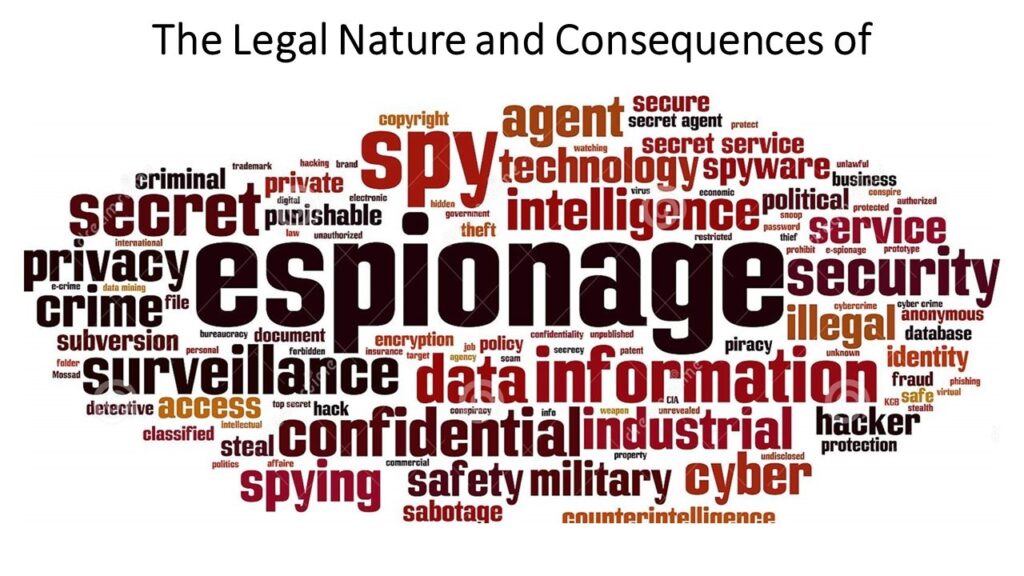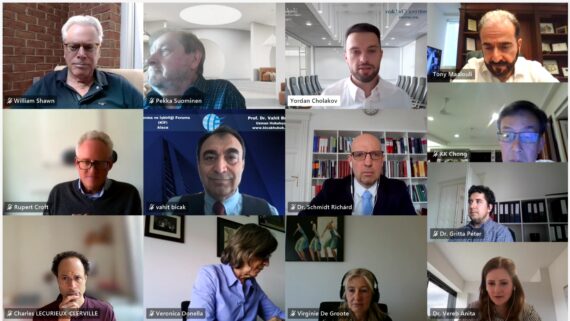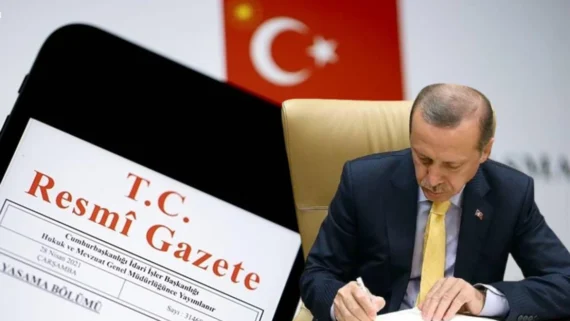Military espionage is treated as one of the gravest crimes in Turkey, with penalties up to 20 years under the Turkish Penal Code. Investigations often involve the National Intelligence Organization (MİT), prosecutors, and High Criminal Courts, using closed hearings and classified evidence. Measures such as asset freezes and trustee appointments, including by the Savings Deposit Insurance Fund (TMSF), extend consequences to corporate entities. Notable cases include the MİT Trucks disclosures (2014), the Deniz Yücel detention (2017), Mossad-linked espionage networks (2021–2024), naval officers accused of leaking NATO secrets, and the recent Assan Group case (2025), where executives were detained and 10 companies placed under TMSF trusteeship. Criticism focuses on extended detentions, limited defense rights, politicization of charges, and economic disruption for companies. Compared to Western democracies, Turkey applies broader interpretations and corporate interventions, more akin to authoritarian models. Bıçak Law Firm provides legal services to clients in the defense and construction sectors, advising on compliance, risk management, litigation, and corporate protection in espionage-related matters.
Defense Industry and Espionage Charges in Turkey
Espionage has long been one of the most sensitive criminal offenses in the field of national security law. In particular, military espionage involves the unauthorized acquisition, disclosure, or transfer of information relating to a country’s defense capabilities, strategic assets, or military operations. Unlike ordinary criminal activity, espionage strikes at the core of state sovereignty and the protection of national interests, which explains why such cases often receive heightened judicial, political, and public scrutiny.
In Turkey, espionage is treated with the utmost seriousness, not only due to the country’s geopolitical position as a NATO member at the crossroads of Europe, the Middle East, and Asia, but also because of its sensitive defense industry and complex regional security environment. Allegations of espionage frequently intersect with broader national security concerns, including terrorism, foreign intelligence operations, and the safeguarding of state secrets.
The recent detention of Emin Öner, owner of the Assan Group, and Gürcan Okumuş, the company’s general manager, once again placed the issue of military espionage into the spotlight. According to a statement by the Istanbul Chief Public Prosecutor’s Office, both men were held on suspicion of military espionage and alleged links to the network of Fethullah Gülen, which Ankara accuses of orchestrating the 2016 coup attempt. At the same time, ten companies affiliated with the Assan Group were placed under trustee management by the Savings Deposit Insurance Fund (TMSF) – a measure that demonstrates how espionage investigations in Turkey may extend beyond individual criminal liability to the corporate sphere.
Military espionage in Turkey therefore stands at the intersection of criminal law, national security, and corporate governance, raising critical questions about the balance between state protection, economic stability, and individual rights.
The Legal Framework of Espionage in Turkey
Constitutional Foundations
The Constitution of the Republic of Turkey provides the overarching framework for protecting national security and state integrity. Article 26, which guarantees freedom of expression, and Article 28, which guarantees freedom of the press, both include explicit limitations where issues of national security, state secrets, and protection of the armed forces are concerned. Espionage crimes are therefore interpreted within the constitutional balance between fundamental rights and the legitimate interests of state security.
Provisions of the Turkish Penal Code (TCK)
The Turkish Penal Code (Law No. 5237) sets out detailed provisions on espionage, particularly in the section dealing with crimes against state security and the constitutional order. The most relevant provisions include:
- Article 328 – Political or Military Espionage
Any person who secures information that must be kept confidential for the security or domestic or foreign political interests of the state, with the aim of political or military espionage, is subject to imprisonment from 15 to 20 years. - Article 329 – Disclosure of Information Relating to State Security
Anyone who discloses information that must be kept confidential for the security of the state faces imprisonment from 5 to 10 years. - Article 330 – Disclosure of Information Relating to State Security for the Purpose of Espionage
If the disclosure in Article 329 is committed for espionage purposes, the penalty increases to 15 to 20 years of imprisonment. - Article 334 to 339 – Military Secrets and Prohibited Information
These provisions cover the protection of documents, locations, and materials of military significance, including photographs, plans, and intelligence reports. Unauthorized acquisition or disclosure constitutes espionage and is subject to aggravated penalties.
Intersection with Anti-Terror Laws
Espionage charges in Turkey are frequently linked with accusations of membership in armed terrorist organizations under Article 314 TCK and the Anti-Terror Law (Law No. 3713). When espionage is alleged to be carried out on behalf of such organizations (e.g., PKK, FETÖ, or foreign intelligence services), courts often treat it as both a national security and counter-terrorism offense.
Investigative and Judicial Authorities
- The National Intelligence Organization (MİT) is the lead agency responsible for intelligence gathering and counter-espionage activities.
- Investigations are conducted under the authority of the Chief Public Prosecutor’s Offices, often in cooperation with specialized counter-terrorism units of the police and gendarmerie.
- Trials are heard in High Criminal Courts, where classified evidence, closed hearings, and witness protection measures are frequently employed due to the sensitive nature of the information involved.
Ancillary Measures
In addition to criminal prosecution, Turkish law provides for a range of administrative and financial measures in espionage cases:
- Asset freezes and seizures to prevent transfer of funds abroad.
- Trustee appointments (TMSF management) for companies linked to suspects, especially in cases involving the defense industry or strategic sectors.
- Travel bans and detention measures ordered by Criminal Judgeships of Peace during investigations.
Notable Espionage Cases in Turkey
Espionage investigations in Turkey are rarely confined to legal texts alone. Over the years, a series of high-profile cases has shown how espionage allegations are applied in practice, often in connection with journalism, foreign intelligence services, or the defense industry. These cases underline the seriousness with which Turkish authorities treat national security offenses, while also exposing the political and diplomatic sensitivities surrounding them.
The MİT Trucks Case (2014–2016)
In 2014, Turkish gendarmerie forces stopped and searched trucks operated by the National Intelligence Organization (MİT) near the Syrian border. Journalists Can Dündar and Erdem Gül published footage claiming that the trucks were carrying weapons, not humanitarian aid as the government asserted.
- Both were arrested and prosecuted for disclosing state secrets and military espionage under Articles 328 and 330 TCK.
- Can Dündar was later sentenced in absentia to 27 years and 6 months’ imprisonment.
- The case epitomized the conflict between press freedom and state security, and was widely criticized internationally.
The Deniz Yücel Case (2017–2018)
German-Turkish journalist Deniz Yücel, a correspondent for Die Welt, was detained in February 2017 on accusations of espionage and terrorist propaganda.
- He was accused of spying for foreign intelligence services and disseminating propaganda for the PKK and FETÖ.
- Yücel’s detention for over a year without indictment triggered a diplomatic crisis between Turkey and Germany.
- Released in 2018, his case illustrated how espionage allegations can become entangled with diplomatic relations and human rights concerns.
Mossad-Linked Espionage Networks (2021–2024)
Several large-scale operations revealed alleged espionage networks working on behalf of Israeli intelligence (Mossad):
- In 2021, dozens were detained for allegedly monitoring Palestinians in Turkey for Mossad.
- In January 2024, 26 suspects were arrested in Istanbul on charges of political and military espionage, allegedly planning abductions and attacks.
- In February 2024, 7 additional suspects were detained for allegedly selling intelligence to Mossad through private detective channels.
These cases signaled a shift toward non-traditional espionage networks, involving private intermediaries and corporate actors rather than uniformed agents.
Naval Espionage Allegations (2013 onwards)
In 2013, several Turkish naval officers were indicted for allegedly leaking secret NATO and Turkish military documents in exchange for illicit favors.
- The case raised alarm about internal vulnerabilities within the armed forces.
- Despite indictments, some officers were later promoted, leading to questions about institutional accountability and transparency.
Espionage Trial Uncovering Diplomatic Surveillance (2025)
In 2025, a former special operations officer was convicted on espionage charges relating to the surveillance of foreign diplomats in Turkey.
- The trial uncovered details of MİT-led monitoring operations, blurring the line between lawful counter-intelligence and unlawful espionage.
- The case highlighted how espionage charges can arise in the diplomatic sphere, raising sensitive issues of international law.
The Assan Group Investigation (2025)
The most recent case involves the Assan Group, a conglomerate active in defense and construction. In August 2025, the Istanbul Chief Public Prosecutor’s Office announced the detention of Emin Öner, the company’s owner, and Gürcan Okumuş, its general manager, on suspicion of military espionage and alleged ties to the Fethullah Gülen network (FETÖ).
- Searches were carried out at their homes and offices.
- Ten companies under the Assan Group umbrella were placed under trustee management by the Savings Deposit Insurance Fund (TMSF).
- This development demonstrates how espionage prosecutions in Turkey can extend beyond individuals to corporate entities, with direct implications for the defense industry, business continuity, and investor confidence.
Observations
- Espionage allegations in Turkey have been applied in diverse contexts: investigative journalism, defense-sector conglomerates, military insiders, and foreign intelligence networks.
- Charges often intersect with terrorism allegations and can carry significant diplomatic and economic consequences.
- The Assan Group case marks a turning point by illustrating how corporate structures in strategic sectors may be subjected to the same scrutiny as individuals.
Procedural Dynamics in Espionage Cases
Espionage investigations in Turkey are distinguished by their sensitive subject matter, which requires a different set of procedural tools compared to ordinary criminal cases. The collection of classified evidence, the use of confidentiality measures, and the appointment of trustees over corporate assets reflect the exceptional nature of these prosecutions.
Initiation of Investigations
- Espionage investigations usually begin with intelligence collected by the National Intelligence Organization (MİT) or specialized police units.
- Based on intelligence reports, the Chief Public Prosecutor’s Office opens a formal criminal investigation.
- During this stage, secrecy is paramount: search warrants, communication interceptions, and surveillance measures are often authorized by Criminal Judgeships of Peace.
Pre-Trial Detention and Arrests
- Given the seriousness of the charges, pre-trial detention is a common feature in espionage cases.
- Suspects can be held for extended periods due to the justification of national security risk, possible destruction of evidence, or fear of flight abroad.
- High-profile examples, such as Deniz Yücel and the Assan Group executives, illustrate how detention itself often becomes a central element of the process.
Use of Classified Evidence
- Evidence in espionage cases often consists of state secrets, intelligence reports, or military documents, which cannot be fully disclosed in open court.
- Turkish law allows closed hearings when national security is at stake.
- Defense lawyers may face restrictions in accessing classified material, raising concerns about the right to a fair trial under Article 36 of the Constitution and Article 6 of the European Convention on Human Rights (ECHR).
Asset Freezes and Trustee Appointments
- In addition to criminal sanctions, courts can order seizure of assets or appointment of trustees to companies connected with suspects.
- The Savings Deposit Insurance Fund (TMSF) often steps in as trustee, as seen in the Assan Group investigation, where ten affiliated companies were placed under its management.
- These measures are justified as necessary to protect strategic industries, but they also raise concerns regarding corporate rights, investor confidence, and proportionality.
Trial Proceedings
- Espionage cases are tried before High Criminal Courts.
- Proceedings are usually marked by:
- Limited public access due to classified information.
- Protected witnesses or anonymous informants.
- Heavy reliance on intelligence material, sometimes without full cross-examination opportunities.
- Sentences under Articles 328–330 TCK can reach 20 years of imprisonment, and when combined with terror-related charges, may lead to aggravated penalties.
Appeals and International Review
- Decisions of High Criminal Courts can be appealed to the Court of Cassation (Yargıtay).
- In many cases, defendants have also applied to the Constitutional Court and the European Court of Human Rights (ECtHR), arguing violations of the right to liberty, due process, and freedom of expression.
- Judgments from these higher courts have occasionally criticized excessive pre-trial detention and lack of access to evidence, but national security concerns often outweigh such arguments in domestic courts.
⚖️ Key Observation: Procedural dynamics in espionage cases illustrate the tension between state security and individual rights. While the state prioritizes protection of classified information and prevention of leaks, defendants frequently face restricted defense rights and broad financial consequences through asset seizures and trustee management.
Case Study: The Assan Group Investigation
The Assan Group investigation of 2025 provides a striking example of how Turkey applies espionage laws in practice, especially in relation to the defense sector and corporate structures. It reflects not only the criminal law dimension of espionage, but also the economic and institutional consequences of such allegations.
Background of the Assan Group
The Assan Group is a conglomerate with significant operations in defense and construction, sectors closely tied to Turkey’s national security and strategic infrastructure. Given its presence in defense-related contracts, the company was already operating within a sphere of heightened governmental oversight.
The Arrests of Emin Öner and Gürcan Okumuş
In August 2025, the Istanbul Chief Public Prosecutor’s Office announced the detention of Emin Öner, the company’s owner, and Gürcan Okumuş, its general manager. Both were accused of military espionage under Article 328 TCK and of maintaining connections with the Fethullah Gülen network (FETÖ).
- Searches were conducted at their homes and offices, indicating suspicion of possession of classified or sensitive documents.
- The charges linked espionage directly with alleged terrorist organization membership, a pattern common in Turkey’s national security prosecutions.
Trustee Appointment and Corporate Seizure
A distinctive feature of this case is the decision to place ten Assan Group companies under trustee management by the Savings Deposit Insurance Fund (TMSF).
- This measure reflects the corporate consequences of espionage allegations, going beyond criminal liability of individuals.
- By transferring control to TMSF, the state effectively secured the assets and operations of the company, preventing potential misuse or foreign transfer of resources.
- However, such interventions also raise questions of proportionality, corporate governance, and investor confidence, particularly when companies are engaged in critical defense activities.
Legal Issues Raised
The Assan case highlights several important legal issues:
- Overlap of Espionage and Terrorism: The simultaneous framing of charges under espionage provisions (Articles 328–330 TCK) and terrorism-related laws (Article 314 TCK, Anti-Terror Law) demonstrates how the state uses a combined prosecutorial strategy in national security cases.
- Fair Trial Concerns: As in other espionage cases, defense lawyers may face restricted access to classified evidence, raising constitutional and ECHR-related challenges.
- Corporate Responsibility: The trustee appointment introduces a quasi-punitive economic sanction on corporate entities before conviction, raising concerns of prejudgment and economic collateral damage.
Broader Implications
- For the defense industry, the case signals that companies with strategic roles are subject to rigorous scrutiny, and allegations of espionage can trigger corporate seizures that disrupt business continuity.
- For the legal system, it underscores the persistent tension between national security imperatives and due process guarantees.
- For foreign investors and partners, the case illustrates the risks of exposure when working with Turkish companies in sensitive sectors. Allegations of espionage may lead to rapid state intervention with wide-ranging economic consequences.
⚖️ Conclusion of Case Study: The Assan Group investigation illustrates the modern evolution of espionage law in Turkey: it no longer applies only to individual spies or journalists, but also to corporate entities at the heart of national defense and infrastructure projects. The case demonstrates how espionage allegations can trigger not only criminal prosecution but also corporate restructuring under state trusteeship, reshaping both the business landscape and the legal framework of national security.
Comparative Perspective
Espionage is a crime found in almost every legal system, yet the definition, scope, and enforcement mechanisms vary considerably across jurisdictions. Comparing Turkey’s approach to other countries reveals both common patterns and unique characteristics in how states balance national security concerns with fundamental rights.
The United States
- The Espionage Act of 1917 remains the cornerstone of American legislation.
- It criminalizes obtaining, transmitting, or disclosing information related to national defense with intent to harm the U.S. or aid a foreign power.
- Penalties range from fines to life imprisonment depending on the severity.
- In recent years, prosecutions under the Act have targeted government employees (e.g., Edward Snowden, Reality Winner) as well as journalists’ sources, raising concerns about freedom of the press.
- Unlike Turkey, corporate seizures or trustee appointments are not typical measures; focus remains on individual liability.
European Union Member States
- EU countries apply espionage laws within the framework of the European Convention on Human Rights (ECHR), requiring strong safeguards for fair trial and freedom of expression.
- Germany: Espionage is prosecuted under the Criminal Code (§§94–100 StGB), with severe penalties for endangering state security. Journalistic activity, however, is more strongly protected than in Turkey, and prosecutions of reporters for “state secrets” are rare.
- France: The Penal Code criminalizes espionage and unauthorized disclosure of defense secrets (Articles 410–413). Like Turkey, France allows for closed hearings when national defense is at stake, but corporate interventions are less common.
- United Kingdom: The Official Secrets Act (1911, 1989) criminalizes disclosure of state and defense information. The UK places greater emphasis on proportionality and judicial review, limiting overreach.
Russia and Authoritarian Systems
- In countries such as Russia or China, espionage laws are applied broadly, often encompassing political dissent or foreign NGO activity.
- These systems, like Turkey, use espionage charges in conjunction with terrorism allegations and are more prone to detaining suspects for long periods.
- Corporate takeovers or state interventions in companies accused of collusion with foreign states are not unusual.
Turkey’s Distinctive Features
In comparison with these systems, Turkey shows several distinctive traits:
- Overlap with Terrorism Laws: Espionage is often prosecuted together with terrorism charges, broadening the scope of criminal liability.
- Corporate Consequences: Trustee appointments (via TMSF) extend espionage enforcement beyond individual punishment to economic and corporate restructuring, a feature not commonly seen in Western jurisdictions.
- Extended Detention Practices: Pre-trial detention is more frequently applied and lasts longer than in most EU systems.
- Restricted Access to Evidence: Classified information is often withheld from the defense, raising persistent fair trial concerns in Strasbourg jurisprudence.
Balancing Security and Rights
The comparative picture shows that:
- All states criminalize espionage harshly, given its threat to sovereignty.
- Democracies such as the U.S. and EU states place stronger emphasis on checks and balances, judicial oversight, and press freedoms.
- Turkey shares more similarities with authoritarian models, where espionage is intertwined with counter-terrorism and political concerns, and where corporate as well as individual consequences are imposed.
⚖️ Key Insight: Turkey’s approach to espionage reflects its unique geopolitical position and security challenges, but it also demonstrates a tendency toward broad interpretation, corporate intervention, and restrictive trial practices. In contrast, Western democracies generally limit espionage prosecutions to individuals and maintain stronger procedural safeguards.
Challenges and Criticisms
Espionage prosecutions in Turkey raise complex issues that go far beyond the narrow question of criminal liability. While the state emphasizes the need to protect national security and defense interests, critics often highlight the risks to fundamental rights, judicial independence, and economic stability.
Fair Trial Concerns
- Restricted Access to Evidence: In many espionage cases, evidence consists of classified intelligence documents. Defense lawyers are frequently denied full access, undermining the principle of equality of arms.
- Closed Hearings: Proceedings are often closed to the public, limiting transparency and public oversight.
- Extended Pre-Trial Detention: Suspects, such as journalists (Deniz Yücel) and business executives (Assan Group), have faced prolonged detention without trial, raising issues under Article 5 ECHR (right to liberty) and Article 6 ECHR (right to a fair trial).
Politicization of Espionage Allegations
- Linkage with Terrorism: Espionage charges are frequently combined with accusations of membership in armed terrorist organizations (e.g., FETÖ, PKK). This prosecutorial approach can blur distinctions between espionage, political dissent, and legitimate opposition activity.
- Use in Press Freedom Cases: Cases like Can Dündar and Erdem Gül demonstrate how journalistic investigations into state conduct can be reframed as espionage, fueling claims of criminalization of journalism.
- Diplomatic Dimensions: High-profile cases such as Deniz Yücel or Mossad-linked arrests have sparked diplomatic disputes, suggesting that espionage prosecutions may be influenced by foreign policy considerations.
Corporate and Economic Implications
- Trustee Appointments (TMSF): Measures such as the seizure of Assan Group companies extend the effects of espionage allegations to entire corporate structures.
- Investor Confidence: Foreign and domestic investors may view espionage-linked seizures as legal uncertainty, particularly in strategic industries like defense, construction, and energy.
- Collateral Consequences: Employees, subcontractors, and creditors of seized companies often face disruption, raising concerns about proportionality and fairness when sanctions extend beyond individual suspects.
Human Rights Criticism
- Constitutional Court Jurisprudence: Turkey’s Constitutional Court has repeatedly found violations in cases involving long detention and lack of access to evidence, though national security is often used to justify restrictions.
- European Court of Human Rights (ECtHR): Strasbourg has criticized Turkey for excessive pre-trial detention and vague use of national security grounds in similar contexts, and espionage cases are likely to follow the same pattern.
The Balance Between Security and Freedom
- While espionage undoubtedly threatens state sovereignty and military preparedness, the broad scope of prosecutions risks eroding fundamental freedoms.
- The challenge lies in ensuring that prosecutions target genuine security threats without silencing journalists, businesses, or political opponents.
- Critics argue that unless judicial independence and proportionality are strengthened, espionage charges may continue to serve as a flexible tool for political and economic control.
⚖️ Key Observation: Espionage prosecutions in Turkey illustrate the tension between protecting national security and upholding rule of law standards. Without stronger procedural safeguards and clearer legal boundaries, such cases risk undermining both domestic legitimacy and international credibility.
Conclusion
Military espionage remains one of the most serious criminal offenses under Turkish law, situated at the intersection of national security, criminal justice, and corporate governance. The cases reviewed – from the MİT Trucks disclosures to the Mossad-linked espionage networks, and most recently, the Assan Group investigation – demonstrate how espionage allegations are applied across a wide spectrum of actors, including journalists, foreign agents, military officers, and corporate executives.
Turkey’s legal framework, grounded in Articles 328–330 of the Penal Code, provides harsh penalties for espionage and allows wide-ranging procedural tools such as pre-trial detention, closed hearings, asset freezes, and trustee appointments. While these measures are justified on grounds of protecting state secrets and safeguarding national defense, they also raise persistent concerns about fair trial rights, judicial independence, and economic collateral consequences.
The Assan Group case in particular illustrates the modern evolution of espionage prosecutions: no longer confined to individuals, but extending to corporate entities in strategic sectors. Trustee appointments and corporate seizures underscore how the state intervenes directly in the economy when espionage allegations arise, a practice that has broad implications for business confidence and foreign investment in Turkey.
In this complex environment, legal guidance becomes essential for companies, executives, and stakeholders operating in sensitive industries. Bıçak Law Firm, with its deep expertise in criminal law, national security, corporate law, and international compliance, provides tailored legal services to clients in the defense and construction sectors. The firm advises on:
- Regulatory compliance with Turkish defense industry laws and export control rules.
- Risk management against espionage and national security-related investigations.
- Litigation and defense in criminal proceedings involving allegations of state secrets or espionage.
- Corporate protection strategies, including safeguarding assets and continuity when faced with trustee appointments or state interventions.
- International law and human rights dimensions, ensuring that clients’ rights are preserved in domestic and cross-border disputes.
⚖️ The challenge for Turkey lies in achieving a durable balance between safeguarding national security and upholding the rule of law. For businesses and individuals in the defense sector, robust legal representation is not just a safeguard but a necessity. In this sensitive field, Bıçak Law Firm stands as a trusted partner, navigating the intersection of law, security, and business with professionalism and foresight.
 English
English Türkçe
Türkçe Français
Français Deutsch
Deutsch










Comments
No comments yet.